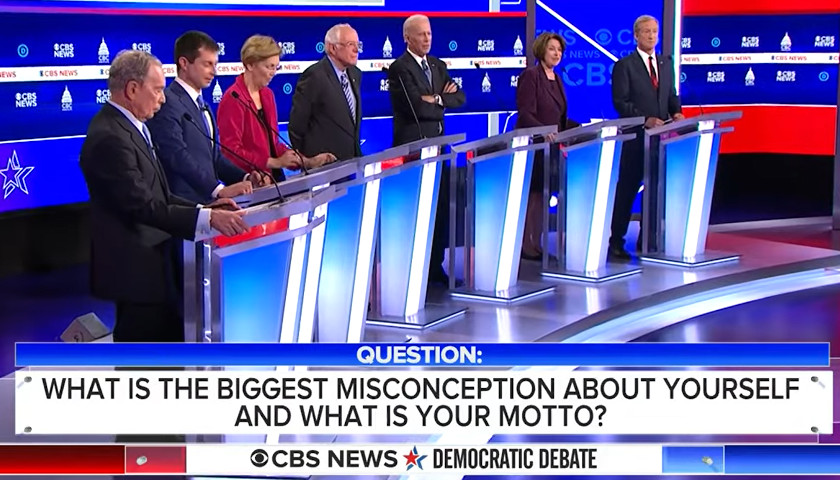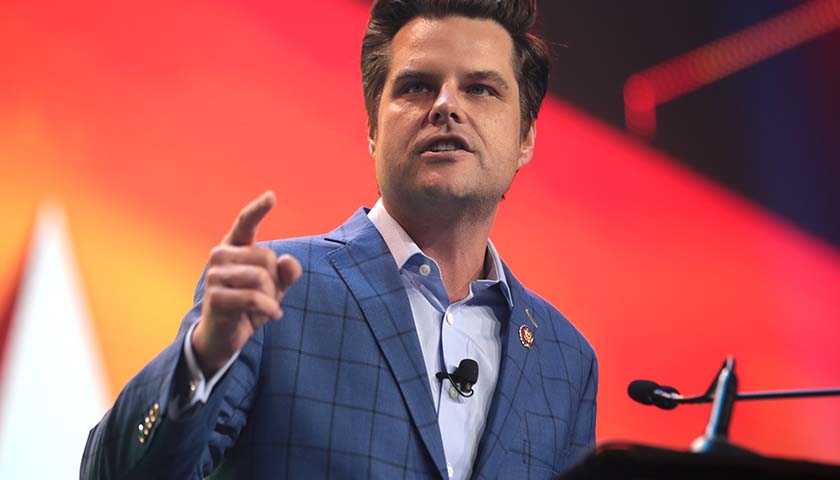by Ken Bredemeier
U.S. Democratic presidential contenders targeted front-runner Bernie Sanders in a raucous debate late Tuesday, contending that the self-declared democratic socialist would lose to Republican President Donald Trump in November’s national election if he is the party’s nominee.
“Bernie will lose to Donald Trump, and the House and Senate will turn [Republican],” former New York Mayor Michael Bloomberg said at the 10th Democratic presidential debate on a stage in Charleston, South Carolina, four days ahead of Saturday’s key presidential primary in the southern state.
Sanders retorted that national surveys show that in the last 50 hypothetical matches against Trump, he had beaten him 47 times.
But Bloomberg responded, looking directly at Sanders, “Can you imagine a moderate Republican voting for him?”
Another candidate, Massachusetts Senator Elizabeth Warren, a longtime ally of Sanders, contended that, “I would make a better president than Bernie,” saying that she could advance the progressive policy goals they share and that he would not be able to.
Sanders’ opponents lobbed one attack after another at the 78-year-old lawmaker, chiding him for favoring a government-run health insurance program that could cost $60 trillion over a decade and end private insurance plans that 160 million Americans use to help pay their health care bills. They also assailed Sanders for opposing bills in Congress that would have held gun manufacturers liable for gun violence in the U.S.
Sanders defended his signature “Medicare for All” health plan, saying it would cut health care costs for millions of Americans. He conceded his vote on the gun legislation “was a bad vote.”
No love lost
Sanders, a longtime senator from Vermont in the northeastern U.S., has surged to the top of national polls of Democratic voters, but his opponents for the Democratic nomination said he is out of step with many American voters.
They claimed that Sanders’ plans to sharply increase social welfare spending for health and education would be too costly. In interviews this week, Sanders’ opponents have also attacked his decades-old favorable assessments of leftist strongmen — the late Fidel Castro in Cuba and Nicaragua’s revolutionary president, Daniel Ortega — saying it would prove to be indefensible and a political disaster for U.S. Democrats in 2020.
In an interview last weekend, Sanders praised Castro’s literacy program in Cuba, despite long-standing U.S. condemnation of Castro’s years of human rights abuses. Old videos of Sanders, when he was mayor of Burlington, Vermont, and visiting Cuba and Nicaragua, are resurfacing, showing him praising advances in socialist countries, haunting his second bid for the U.S. presidency.
Late in the debate, Sanders said he has “opposed authoritarians all over the world,” but contended that “when dictatorships do something good, you acknowledge, but you don’t exchange love letters.”
Former South Bend, Indiana, Mayor Pete Buttigieg said such a Sanders sentiment would not help him run against Trump.
“I am not looking forward to a scenario where it comes down to Donald Trump, with his nostalgia for the social order of the 1950s, and Bernie Sanders, with nostalgia for the revolutionary politics of the 1960s,” Buttigieg said. “This is not about what was happening in the 1970s or ’80s, this is about the future. This is about 2020.”
Russian boost
Moreover, on the eve of the Nevada caucuses last week, The Washington Post revealed that U.S. intelligence officials had informed Sanders that Russian President Vladimir Putin is attempting to help Sanders win the nomination, in hopes that he would be an easier opponent for President Trump.
At the top of the debate, Bloomberg took a pot shot at Sanders, saying, “Vladimir Putin thinks that Donald Trump is, should be president of the United States, and that’s why Russia is helping you get [nominated] so you’ll lose to him.”
An agitated Sanders responded: “Hey, Mr. Putin, trust me, if I’m president, you’re not going to interfere in any more American elections.”
The face-to-face confrontation among seven candidates also came just a week before voters head to the polls in 14 states next Tuesday, when more than a third of the delegates to the Democrats’ national nominating convention in July will be picked in a one-day marathon of voting from coast to coast.
Sanders won the popular vote in the first three nominating contests in Iowa, New Hampshire and Nevada, making it imperative for at least one of Sanders’ opponents to mount a serious challenge in the next week of voting or face the prospect that Sanders could soon amass an insurmountable lead in pledged delegates to the national convention.
Democrats apportion their pledged delegates to the national conclave based on the proportional outcome of the candidates’ vote totals throughout the 50 states and U.S. territories, not on a winner-take-all basis as is the case within the Republican Party. That gives Sanders a chance to add to his first-place standing in the count of pledged delegates as each state votes, even if he loses an individual state.
Former Vice President Joe Biden is narrowly ahead of Sanders in recent polling in South Carolina, with its 54 national delegates in play. But analysts have not discounted the possibility that Sanders could also win the state three days ahead of the March 3 voting, a day dubbed as Super Tuesday. when a massive haul of 1,357 delegates is at stake.
Biden, who once led national polls in the race to take on Trump, finished a distant second in last Saturday’s Nevada voting, and even further back in Iowa and New Hampshire.
The South Carolina polling shows wealthy environmentalist Tom Steyer, who has spent large sums on an advertising campaign in the state, could finish third in the balloting, which could lend modest momentum to his long shot candidacy. The surveys in the state show him ahead of former South Bend, Indiana, Mayor Pete Buttigieg, Warren and Minnesota Senator Amy Klobuchar.
“I expect to show that I can pull together a diverse coalition of Democrats, which is what we need to do in November of 2020 to beat Donald Trump,” Steyer told VOA’s Russian service after the debate.
Warren vs Bloomberg
For the second debate in a row, Warren attacked Bloomberg’s sexist and misogynistic comments toward female workers at his eponymous business information company that he founded, an enterprise that made him the 12th-richest person in the world.
In a heated exchange, Warren accused Bloomberg of suggesting to a woman who worked for him and had just announced her pregnancy to “kill it,” and have an abortion.
“I never said that,” he heatedly answered, later adding emphatically, “I categorically never said it.”
Bloomberg, by his choice, is not on the South Carolina ballot, and instead has focused on next Tuesday’s voting, when he is on all 14 of the Super Tuesday state ballots.
He appeared on the debate stage with his opponents for the first time last week, but the billionaire came under withering attack, with his challengers accusing him of trying to buy the election with his vast wealth.
Bloomberg’s opponents also assailed the stop-and-frisk, anti-crime policing effort he employed as New York mayor from 2002 to 2013, a program he now says he is embarrassed by because of the effect it had in targeting young black and Latino men.
After Warren assailed his refusal at last week’s debate to release women from secrecy agreements about the financial settlements they reached with Bloomberg’s company, he agreed that three women who had specifically accused him of demeaning remarks could speak publicly if they wanted to, but no one has as yet. It is not clear how many financial settlements Bloomberg reached with women who worked for his company.
Warren said Tuesday Bloomberg should release women from all the settlements, not just the three he has agreed to do.
“The trouble with this senator, enough is never enough,” Bloomberg said.
Bloomberg has made no apologies for his fortune, saying he has donated vast sums to charitable ventures, as well as arts, environmental, public health, anti-smoking and gun control organizations.
Now, he said, he is spending hundreds of millions of his own money trying to unseat fellow New Yorker Trump, a man he has occasionally praised over the years as a prominent real estate mogul but now assails as an unfit president.
Biggest misconception
As the debate neared the end, the seven candidates were asked what they thought the public’s biggest misconception was about them.
Steyer, a multibillionaire investor and philanthropist, said “I am defined” by my business success. Klobuchar, the Minnesota senator, said, “The biggest misconception is that I’m boring, because I’m not.” Sanders said the biggest misconception was that “the ideas I’m talking about are radical, because they’re not [and] in one form or another they exist in countries around the world.” Warren’s response was “that I don’t eat very much. I eat all the time.”
Biden drew laughter when he said the biggest misconception is “I have more hair than I think I do.” Buttigieg lamented that “I think the biggest misconception is that I’m not passionate. … Some say I’m unflappable. I don’t think you would want a flappable president.”
Finally, the 5-foot-8-inch Bloomberg joked, “The biggest misconception is that I’m 6 feet tall.”
“I have been training for this job for a long time, and when I get it, I will do something, and not just talk about it,” Bloomberg added.
Trump weighs in
Trump, who was traveling back from a visit to India at the time of the debate, unsurprisingly was critical of his potential Democratic opponents when asked if he saw the event.
“I did. Not too good, not too good,” Trump said as he returned to the White House early Wednesday.
Watch the full debate here:
– – –
Photo “Democratic Debate” by CBS News.




